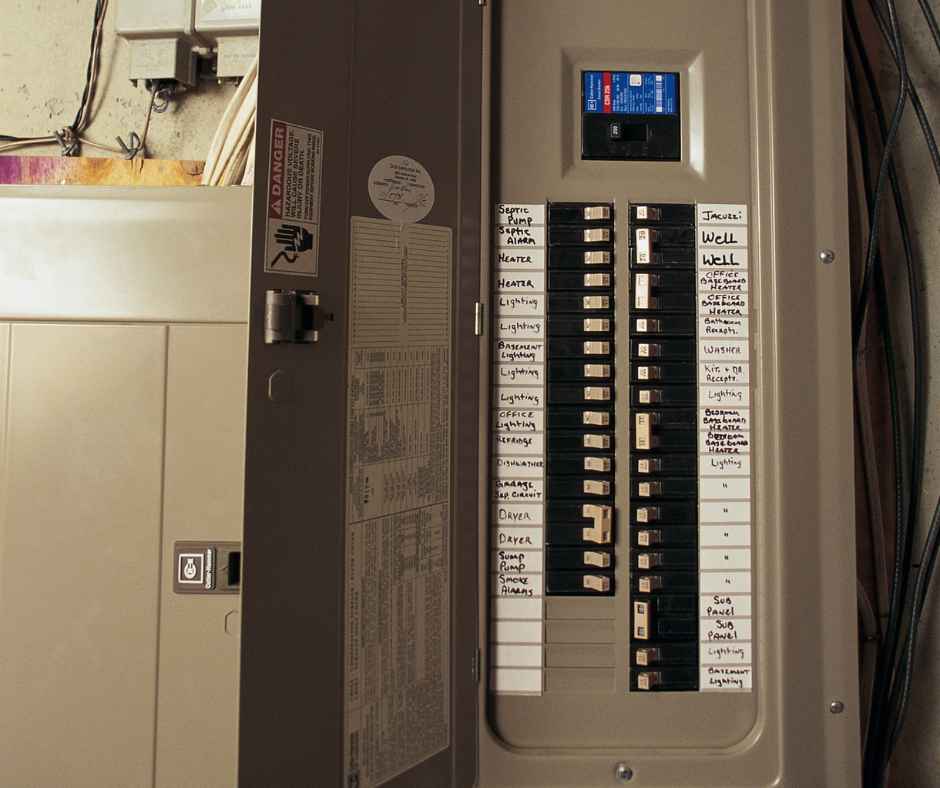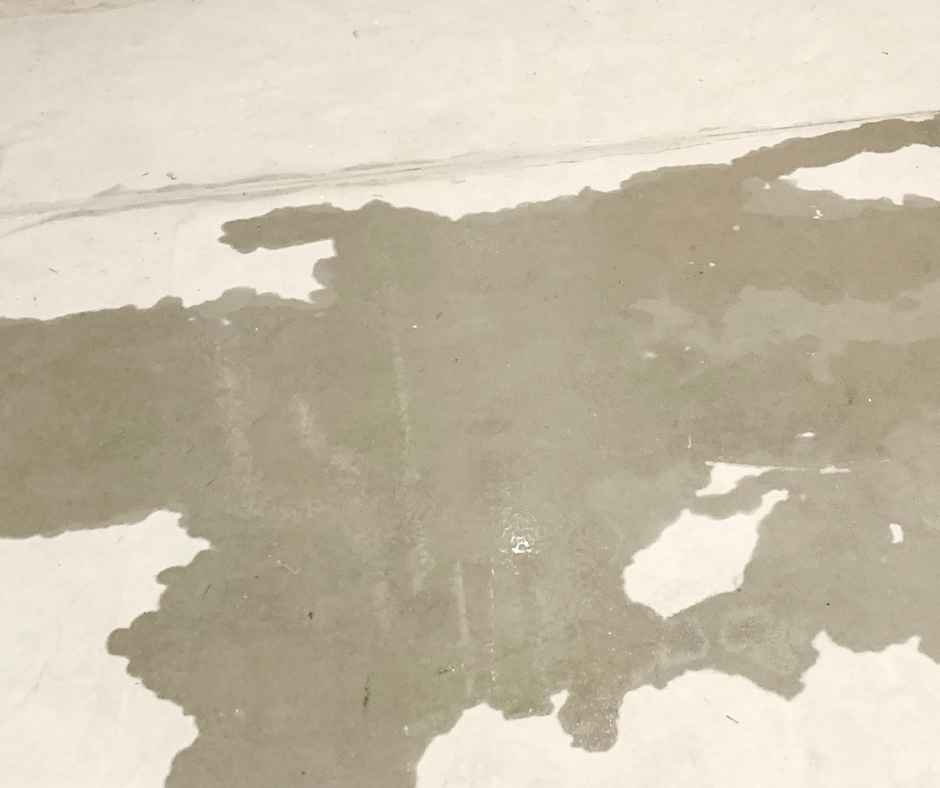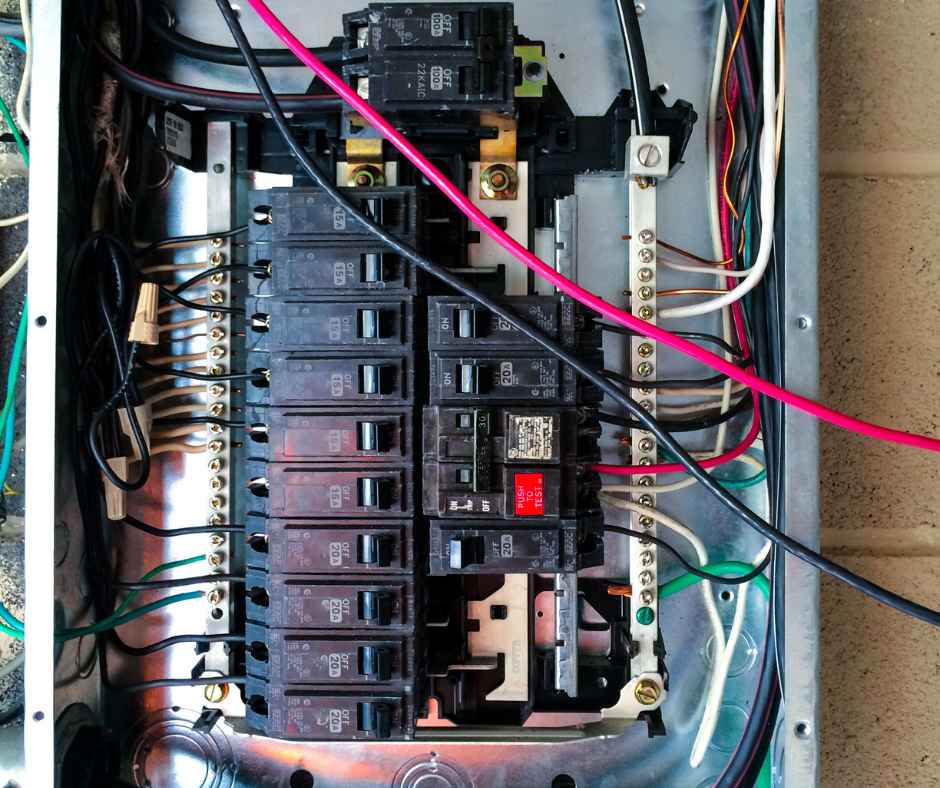Why Colorado Homes Face More Electrical Panel Problems During Winter Heating Season

When winter arrives in Colorado, homeowners rely on their heating systems to keep every room warm and comfortable. But what many people don’t realize is that this increased demand for heat also puts added pressure on their home’s electrical system. The heart of that system is the electrical panel, which manages the flow of electricity to every circuit in the house.
During the coldest months, Colorado homes often experience more frequent electrical panel problems. From tripped breakers to overloaded circuits, these issues can interrupt heating systems and create potential safety risks. The combination of freezing temperatures, fluctuating energy use, and aging electrical infrastructure makes winter one of the toughest seasons for residential power systems in the state.
In this blog, we’ll explore why Colorado homes are more vulnerable to electrical panel issues during winter, what signs to look for, and how regular maintenance or upgrades can keep your home safe and efficient all season long.
Understanding Your Electrical Panel’s Role
Your electrical panel is the command center of your home’s power system. It distributes electricity from your utility line to individual circuits throughout the house, ensuring that each outlet, appliance, and light fixture receives the right amount of power. Every time you turn on your furnace, plug in a space heater, or switch on your holiday lights, your panel works to balance that electrical load safely.
During the winter, energy demand in Colorado homes can rise significantly. Heating systems, portable heaters, and humidifiers often run at the same time, adding to the strain on your electrical network. If your panel is undersized or contains worn components, it can struggle to handle these seasonal spikes in demand.
Modern electrical panels are designed to manage today’s energy needs efficiently, but many older Colorado homes still rely on outdated systems that were not built for the high electrical usage of modern living. When temperatures drop, this mismatch becomes more noticeable and potentially hazardous.
Why Colorado Homes Are Especially Vulnerable in Winter
Colorado’s winters are beautiful, but they create demanding conditions for home electrical systems. The combination of freezing temperatures, low humidity, and fluctuating power use puts heavy stress on residential electrical panels. Homes in mountain and foothill regions experience especially harsh conditions, where heaters and electric furnaces run for extended periods.
The colder it gets, the more power homeowners use to stay warm. Electric furnaces, baseboard heaters, and even heated floors can draw large amounts of current. When these systems run together, they push older or undersized electrical panels close to their limits.
Another factor is the age of Colorado’s housing stock. Many homes built before the 1990s still operate on 100-amp panels, which may not provide enough capacity for today’s heating appliances, smart devices, and high-efficiency systems. Combined with dry winter air that can cause static buildup and brittle wiring insulation, the risks for electrical overload or failure increase significantly.
Regional conditions such as snowmelt near exterior panels or moisture seepage in basements can also lead to corrosion and poor electrical connections. When that happens, power flow becomes inconsistent, and the chances of tripped breakers or short circuits rise sharply.
Common Electrical Panel Problems During Winter
When temperatures drop, your home’s electrical panel works harder than at any other time of year. The added demand from heating systems, holiday lights, and household electronics often reveals weak spots in your electrical system. Below are the most common problems Colorado homeowners experience during the winter heating season.
- Overloaded Circuits: Too many heaters or appliances running at once can exceed a circuit’s capacity, leading to frequent breaker trips and power interruptions.
- Frequent Breaker Tripping: Breakers that trip often during winter can indicate wiring that is too small or aging components that cannot handle modern power needs.
- Corrosion and Moisture Damage: Snow and condensation can enter outdoor or basement panels, causing rust, corrosion, and dangerous short circuits.
- Loose or Worn Connections: Temperature swings cause metal parts to expand and contract, loosening connections and increasing fire risk.
- Outdated Panels or Breakers: Older panels such as Federal Pacific or Zinsco lack modern safety standards and struggle to handle the power demands of today’s homes.
Warning Signs Your Panel May Be Struggling
Your electrical panel often shows early warning signs before a serious problem occurs. Paying attention to these clues can help prevent costly repairs or safety hazards.
- Flickering or Dimming Lights: Lights that dim when you turn on a heater or appliance suggest your panel is struggling to handle the load.
- Buzzing or Crackling Sounds: Unusual noises coming from the panel can point to loose connections or arcing inside the breakers.
- Warm or Hot Panel Cover: The panel should never feel hot to the touch. Excessive heat signals overload or poor internal wiring.
- Frequent Breaker Trips: Constant tripping is more than an inconvenience. It’s a sign that your system is overworked or improperly balanced.
- Burning Smell or Discoloration: A smoky odor or dark marks around breakers may indicate overheating and should be inspected immediately.
Ignoring these symptoms can lead to more serious damage, including electrical fires or system failure during the coldest part of winter. If you notice any of these issues, call a licensed electrician to inspect your panel right away.
How Homeowners Can Prevent Winter Electrical Panel Issues
A little preparation before winter can save you from costly repairs and safety risks. Regular care and smart upgrades keep your electrical panel performing safely through Colorado’s coldest months.
- Schedule a Professional Inspection: Have a licensed electrician inspect your panel before winter. They can identify loose connections, corrosion, or outdated breakers before they become serious problems.
- Upgrade an Outdated Panel: Homes with 100-amp service or older panels may not handle today’s heating and appliance demands. Upgrading to a modern 200-amp panel improves safety and efficiency.
- Distribute Electrical Loads Evenly: Avoid plugging too many high-wattage devices into one circuit. Spread heaters and appliances across multiple outlets when possible.
- Install Surge Protection: Power surges caused by heaters, storms, or grid fluctuations can damage wiring. Whole-home surge protection safeguards sensitive electronics and reduces stress on your panel.
- Keep Moisture Away: Ensure outdoor panels and basement service areas stay dry. Seal openings, repair weather stripping, and maintain proper ventilation to prevent condensation.
- Test Breakers and GFCIs Regularly: Push the test button on ground fault and arc fault breakers monthly to ensure they work properly.
Taking these preventive steps helps reduce the risk of electrical emergencies and extends the life of your panel.
Why Professional Maintenance Matters
Working with a certified electrician is one of the best ways to protect your home and electrical system. Professional maintenance ensures your panel is safe, efficient, and ready for Colorado’s demanding winter season.
- Accurate Problem Diagnosis: Licensed electricians use specialized tools to identify hidden issues that homeowners often miss, such as weak connections or uneven loads.
- Code Compliance: Professionals ensure all repairs and upgrades meet current electrical codes and safety standards, preventing costly violations or hazards.
- Improved Energy Efficiency: A properly maintained panel distributes electricity more effectively, reducing wasted energy and helping lower utility bills.
- Reduced Fire Risk: Routine inspections catch early signs of overheating, arcing, or corrosion before they can cause dangerous electrical fires.
- Long-Term Savings: Preventive maintenance helps avoid emergency repairs and extends the lifespan of your electrical panel and connected systems.
WireNut Home Services employs trained, certified electricians who understand the unique challenges of Colorado homes. Regular service from a trusted professional keeps your electrical system running safely and efficiently all year long.
Keep Your Colorado Home Safe with Winter Electrical Maintenance
Colorado winters are tough on home electrical systems, and your panel is at the center of it all. As temperatures drop, heating systems, appliances, and electronics push your electrical network to its limits. Without proper maintenance, even a small issue can lead to major problems like power loss or fire hazards.
By preparing your electrical system before the cold sets in, you can prevent many of the issues that plague homeowners every winter. Regular inspections, timely upgrades, and surge protection all play a crucial role in keeping your family safe and your power reliable.
WireNut Home Services offers expert electrical inspections, repairs, and upgrades tailored to Colorado’s unique climate. Whether you need a panel replacement or a pre-winter safety check, our licensed electricians are here to help keep your home warm and powered safely all season long.
Contact us today to schedule your electrical inspection and ensure your home is ready for Colorado’s winter heating season.
Frequently Asked Questions About Electrical Panels
How often should I have my electrical panel inspected in Colorado?
It’s best to schedule an inspection once a year, ideally before winter. Regular inspections help detect corrosion, loose wires, or breaker wear before the cold weather increases electrical demand.
Can my furnace trip my circuit breaker during cold weather?
Yes. Furnaces draw a significant amount of power when starting up. If your breaker trips often, it may be overloaded, undersized, or connected to other high-demand appliances on the same circuit.
What’s the average lifespan of a home electrical panel?
Most electrical panels last between 25 and 40 years. However, Colorado’s temperature swings and dry air can shorten that lifespan if the system isn’t maintained properly.
Is it safe to reset a tripped breaker myself?
It’s safe to reset a breaker once, but if it trips again immediately, stop and call a licensed electrician. Frequent tripping can signal serious issues that require professional repair.
Can an electrical panel upgrade improve my home’s resale value?
Yes. Upgrading your electrical panel improves safety, accommodates modern appliances, and appeals to homebuyers who value reliable power and energy efficiency.




